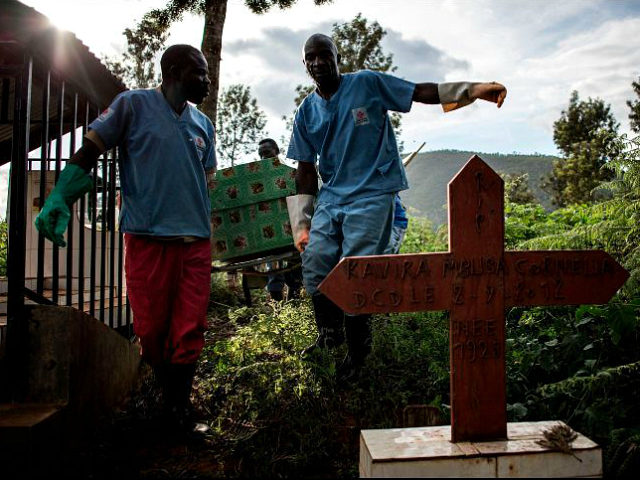Conflict, insecurity, and a lack of access to patients are the principal factors slowing down efforts to end the Ebola outbreak in the Democratic Republic of Congo, according to a new assessment from the World Health Organization (WHO).
The virus has been largely eradicated from 25 of the region’s designated health zones. In four of the zones, an average of between four to ten new cases are reported every week, a significant fall from earlier this year where that number was regularly in the dozens.
However, fighting among armed groups in North Kivu and Ituri provinces are causing concern health officials, who believe that this is behind the substantial increase in cases in those two areas. This is likely because the conflict is forcing people to flee their homes, thus increasing the likelihood that those infected with the virus will spread it to others.
“Last week, 4 to 10 of December, the number of cases jumped to 27 in a single week,” Michael Ryan, the executive director of the WHO’s Health Emergencies Program, told Voice of America (VOA). “That is nearly a three-fold increase, more than a three-fold increase in one week, which is quite remarkable.”
He went on to explain that the rise in infections is linked to one single chain of transmission stemming from one infected individual:
This case was a case, most likely of a lapsed infection or someone who relapsed from having been previously recovered. And, this has occurred in an area that is quite insecure and been very difficult to operate in … and it is most worrying because one of the contacts from that transmission chain ended up moving to (the city of) Butembo and died in Butembo.
The transmission of the Ebola virus is typically a result of physical contact between individuals. Symptoms usually include a sudden fever, intense weakness, muscle pain, and a sore throat, before later progressing to vomiting, diarrhea and both internal and external bleeding.
Deaths are normally the result of dehydration and organ failure. According to the latest figures, around 3,354 have contracted the disease, with roughly two thirds (2,218) of those individuals dying. Another concern for authorities are the continued threats faced by aid workers. So far this year, the WHO recorded over 300 attacks against health workers, causing five deaths and 70 injuries.
The recent outbreak of violence against Ebola campaigners and health and aid workers largely comes from fears felt across rural Africa, particularly in disadvantaged communities who feel a sense of distrust towards Western medical practices.
Follow Ben Kew on Facebook, Twitter at @ben_kew, or email him at bkew@breitbart.com.

COMMENTS
Please let us know if you're having issues with commenting.